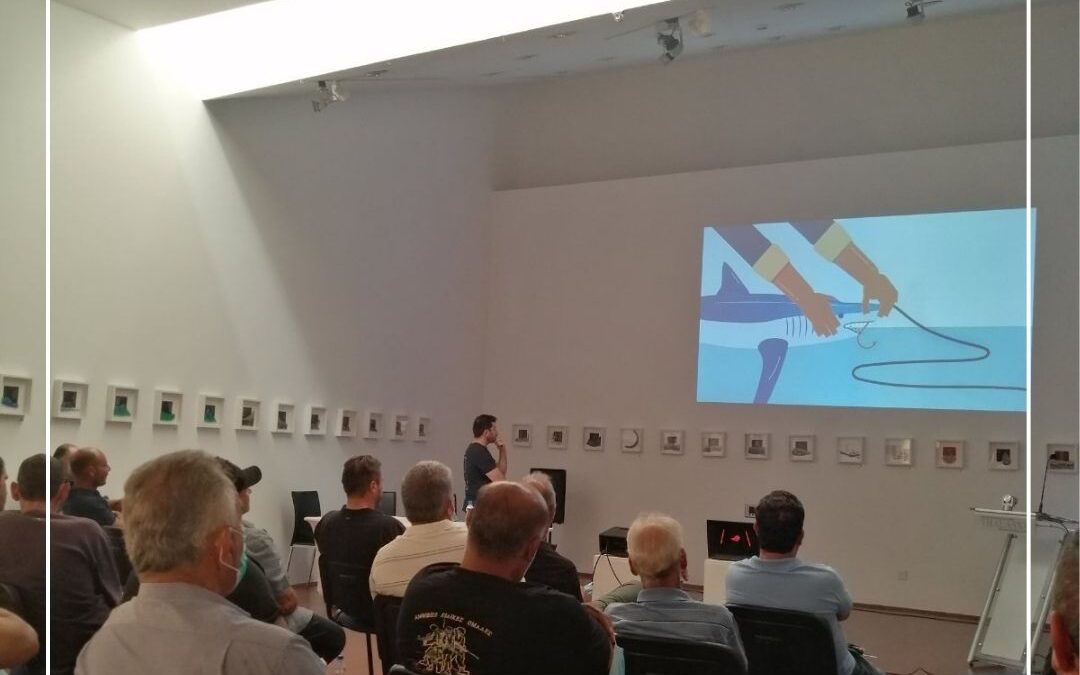Meeting with small scale fishers to train them on safe handling and release of vulnerable species
The incidental capture of vulnerable species, also known as bycatch, including taxa like sharks and rays, sea turtles, marine mammals, sea birds as well as benthic marine organisms like corals and sponges, is a key conservation issue in the Mediterranean and worldwide.
Bycatch on fishing gears often leads to significant injuries or even death from drowning. However, this is not just a conversation issue. It is well known now that bycatch and vulnerable species-fisheries interactions could lead to significant economic loss of fishers due to the reduced quality of catch, loss of catch and damage on fishing gear.
The current measures available for mitigating the issue of bycatch are often ineffective or they have very low effect. Awareness and training of fishers on how to safely handle and release vulnerable species could be an effective long-term solution. Safe handling and release refer to using best practice methods for dealing with bycatch species, to maximise their chances of survival after interacting with fishing gear.

Through the Phase I of the Cyprus Bycatch Project, it was identified that there is a high probability of bycatch of vulnerable species, especially sharks and rays and turtles in small-scale fisheries.
On the 28th of September, Enalia Physis Environmental Research Centre held a 1-day workshop under the framework of Cyprus Bycatch Project at Thalassa Museum, Ayia Napa to train small-scale fishers on the safe handling and release of vulnerable species.
The aims of this workshop were to present to small scale fishermen the main results of phase I and the main activities of phase II of the Cyprus Bycatch Project and train them on safe handling and release of vulnerable species. The workshop was held under the activity “Training of professional fishers”. Guides about the safe handling and release were disseminated.
.



The main purpose of the guides was the increasing need for marine vulnerable species conservation (sharks, turtles, cetaceans, and seabirds), by promoting responsible fishing practices in the Mediterranean. These guides were developed by the Secretariat of the Agreement on the Conservation of Cetaceans of the Black Sea, Mediterranean Sea and Contiguous Atlantic Area (ACCOBAMS) and the Secretariat of the General Fisheries Commission for the Mediterranean (GFCM) in collaboration with the Specially Protected Areas Regional Activity Center (SPA/RAC) and have been translated in Greek under the framework of the Cyprus Bycatch Project.

At the end, we had a small gathering and discussions with fishers with snacks and drinks at the forecourt of the Museum.
Overall, the event turned into a success, due to the large participation and the interest that the fishermen showed through the event.



Recent Comments